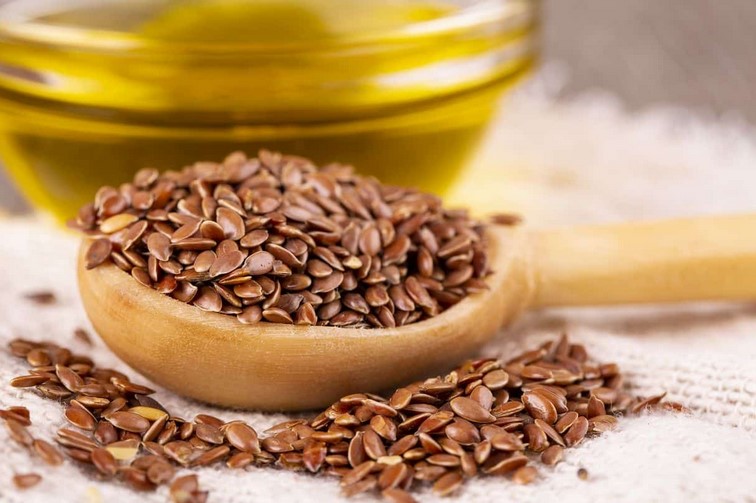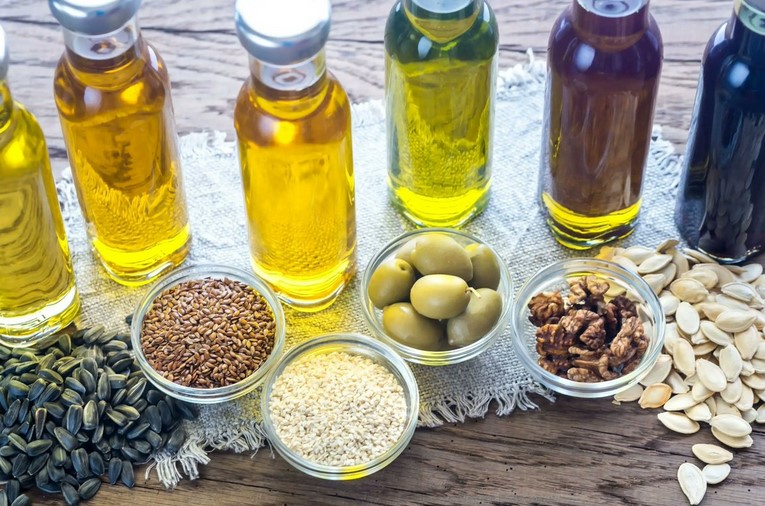Linseed oil is an oil made from linseed seeds that is usually sold raw in hardware stores. It is used for wood finishing and adding to paint. Although the raw linseed oil is considered food-safe, industrial production processes could result in chemical residues, which should be avoided. In addition, linseed oil isn’t appropriate for use on cutting boards.
Linseed oil is obtained by pressing the flax plant. Raw linseed oil is safe for human consumption. A popular belief has been that it is dangerous to consume linseed oil in its natural food grade form. There are numerous websites claiming that raw linseed oil causes vomiting, seizures and death. One website I found even went as far as to say that 80 years ago, a father committed suicide by drinking a glass of pure Linseed oil!
Purified linseed oil
Linseed oil is produced in two main ways: the first is boiled, which is the natural form. In the second way, the oil is processed using a chemical process. This chemical process changes the oil’s viscosity from liquid to solid and shortens the drying time. The latter form is used to treat woodwork indoors and is the main ingredient in exterior linseed paints. In the former case, the oil is processed with chemicals such as cobalt and manganese, which are classified as heavy metals.
While boiled linseed oil is not poisonous, it is not recommended for use on food boards, as it contains chemicals that may be harmful to humans. However, when it is processed, it becomes solid, which makes it unsuitable for using on cutting boards.

Jasco boiled linseed oil
The best way to ensure that Jasco boiled linseed is food safe is to make sure it is dried thoroughly before using it. The easiest way to do this is to place it outside in the sun. Once it is completely dry, it will be harmless to use on food surfaces.
Boiling linseed oil will not cause any harm to bees or humans, but it won’t do much for outdoor wood. In fact, an outdoor polyurethane varnish would be a much better choice. It’s also not edible and may cause nausea, diarrhea, and vomiting. For a more protective finish, try using Liberon finishing oil, which is non- toxic and safe for wood. It gives furniture a matt to satin finish, and protects against water and sunlight.
Tung oil
Linseed oil is a natural plant oil that is considered food safe. It is not toxic unless it is raw and unprocessed. However, it can be difficult to find a pure product. Many of them are chemically processed. In order to be sure, it is best to purchase the oil that is certified 100% pure.
Linseed oil has a high nutritional value. It is a rich source of omega-3 fatty acids and is often used as a nutritional supplement. It is also widely used in beauty products.

Mineral oil
Most home kitchen cabinets are filled with various cooking oils. The question is, “Is mineral oil food safe?” The answer is yes, as long as you buy food-grade mineral oil. Mineral oil is colorless and odorless, and is often used in the cosmetics industry. It’s also used in industrial settings and laboratories. However, it’s not often used in the kitchen.
Mineral oil, also known as liquid paraffin, is a petroleum -based product that is non-drying, odorless, and non- toxic. This type of oil is also a great way to protect wooden kitchen objects like utensils, pots, and pans. It’s also a relatively stable type of oil that won’t spoil in warm temperatures. In addition, it leaves a clear finish.
We could have presented this information in a list, but thought that the infographics format would be more visually pleasing and efficient. We wanted people to easily recognize what raw linseed oil is, in addition to its benefits as food safe oil.








